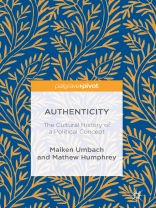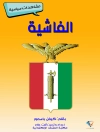Authenticity is everywhere: political leaders invoke the idea to gain our support, advertisers use it to sell their products. But is authenticity a dangerous hoax? What is, and is not, authentic has been hotly debated ever since the concept was invented. Many academics have sought to ‚unmask‘ authenticity claims as deceptive. This book takes a different approach. In chapters covering historical and contemporary examples, the authors explore why authenticity, real or imagined, exercises such a powerful hold on our imaginations. The chapters trace how invocations of authenticity borrow from one another, across arenas such as philosophy and theology, encounters with nature, leisure, and mass consumption, political and corporate leadership, left-wing and right-wing ideologies. This cultural history of authenticity is of interest to academic and lay readers alike, who are interested in the significance and history of a concept that shapes how we understand ourselves and the world we live in.
Inhaltsverzeichnis
Chapter 1. Introduction.- Chapter 2. The Nature of Authenticity, and the Authenticity of Nature.- Chapter 3. Living in an Inauthentic Society?.- Chapter 4. Authentic Leadership.- Chapter 5. Authenticity and Consumption.- Chapter 6. Conclusion.
Über den Autor
Maiken Umbach is Professor of Modern History at the University of Nottingham, UK. She has published on Enlightenment gardens, on industrial and urban design around 1900, on regionalism, and on cultural politics in Nazi Germany. She currently works on private photography and ideology under National Socialism.
Mathew Humphrey is Professor of Political Theory at the University of Nottingham. UK. He has published on environmental political philosophy, on democratic theory, political ideology, and radical protest. He currently works on environmental politics in the UK and Europe.
Both authors jointly direct the Centre for the Study of Political Ideologies at the University of Nottingham.












